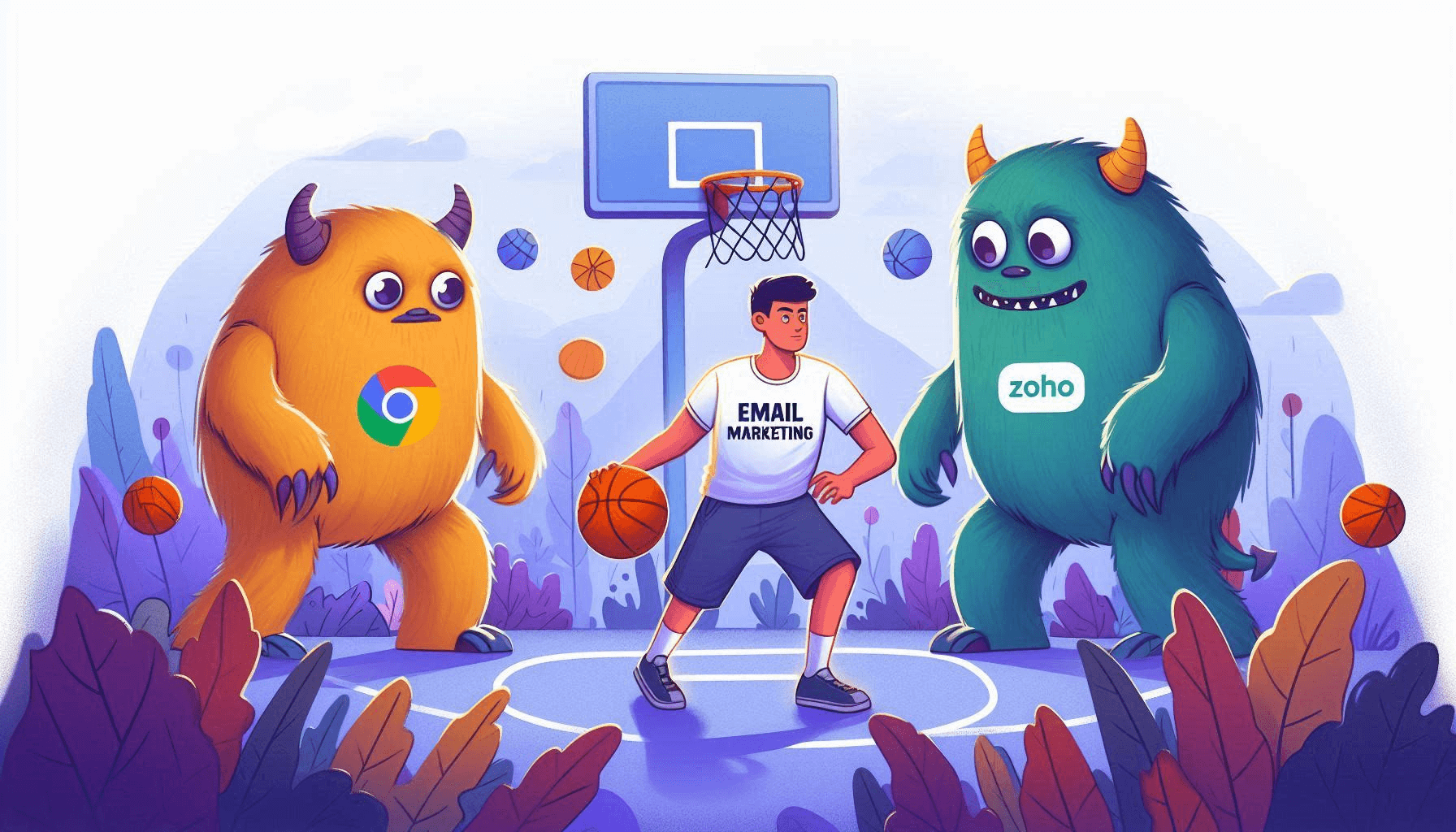AI in Digital Marketing: Its Advantages and Disadvantages
Introduction: The Rise of AI in Digital Marketing
Artificial Intelligence (AI) has become a transformative force across various sectors, altering traditional practices and enabling greater efficiency and personalization. In the realm of digital marketing, AI’s influence is increasingly pronounced. Marketers harness AI’s power to analyze data, predict trends, and tailor experiences to individual consumer behaviors and preferences, ushering in a new era of marketing strategies.
Understanding AI and Its Impact on Various Industries
AI refers to machines’ ability to perform tasks that typically require human intelligence, such as understanding natural language, recognizing patterns, and decision making. This technology has revolutionized industries such as healthcare, finance, and transportation by contributing to advances in diagnosis and treatment, fraud detection, and autonomous vehicles. Its profound impact on productivity and innovation continues to reshape our interaction with technology and its application in the workplace.
The Intersection of AI and Digital Marketing
Digital marketing has indeed reached a significant inflection point with AI’s integration. AI aids in the collection and analysis of massive datasets, enabling marketers to gain unprecedented insights into consumer behavior. By leveraging machine learning algorithms, businesses can deliver highly targeted advertisements, recommend precisely what a customer is likely to buy, and even predict future buying patterns. Predictive search technologies further refine this capability by anticipating user queries and offering results even before the full question is typed, significantly enhancing user experience and engagement. As a result, marketing campaigns become more efficient, and personalized, while enhancing customer engagement and conversion rates.
Preview of Advantages and Disadvantages of AI in Digital Marketing
The advantages of AI in digital marketing are manifold. AI-driven analytics empower marketers with deep insights, automate repetitive tasks, and offer real-time modification of campaigns to optimize performance. Moreover, AI enhances content generation and SEO, enabling content creators to rank higher in search engine results and reach intended audiences effectively. Conversely, reliance on AI presents certain disadvantages, including the potential for oversight reduction, the risk of perpetuating biases in decision-making processes, and the profound impact on job displacement in certain marketing roles. In the ensuing discussion, each advantage and disadvantage will be unpacked, highlighting the nuanced implications of AI’s role in the future landscape of digital marketing.
Advantages of AI in Digital Marketing
Personalization at Scale
AI technology enables digital marketers to customize experiences for consumers on an impressive scale. By leveraging algorithms and machine learning, digital marketers can analyze vast amounts of data to predict customer behavior and tailor marketing strategies to individual preferences. This results in more engaging and relevant marketing that meets the unique needs and desires of each consumer.
Improved Customer Insights Through Data Analysis
Data is the cornerstone of modern marketing strategies. AI excels at dissecting large datasets to uncover patterns and insights that might otherwise go unnoticed. This capability allows marketers to gain a deeper understanding of their audience, refine their marketing campaigns, and make data-driven decisions that are more likely to yield positive outcomes.
Enhanced User Experience with Chatbots and AI Assistants
Chatbots and AI assistants have revolutionized user experience, providing instant support and feedback to customers. By employing natural language processing, AI helps in handling inquiries, solving problems, and assisting users throughout their journey. This technology is available 24/7, ensuring that help is on hand whenever the customer needs it, thereby boosting satisfaction and loyalty.
Increased ROI with Efficient Ad Targeting
Ad targeting has been refined with AI’s introduction, enabling marketers to serve highly relevant ads to the most receptive audience segments. By analyzing consumer behavior alongside contextual data, AI optimizes ad placements to ensure the best possible return on investment. Businesses benefit from reduced ad waste and improved conversion rates.
Streamlined Content Creation and Curation
AI not only aids in understanding and engaging with audiences but also enhances content strategy. It assists in the creation and curation of content by identifying trends, generating content ideas, and even producing initial drafts of written material. This streamlines the content creation process, ensures that published content is topical and relevant, and saves marketers time that can be better spent on strategic tasks.
Disadvantages of AI in Digital Marketing
High Initial Costs and Complexity of Integration
Implementing AI into digital marketing strategies often requires significant investment. Businesses must consider the cost of acquiring advanced AI technologies, which can be prohibitive. Additionally, the complexity of integrating these systems into existing marketing frameworks can be daunting, sometimes requiring extensive restructuring of marketing departments and processes. The resources required for training and adaptation further add to the overall expense.
Potential Loss of Jobs and Human Touch
As AI systems become more proficient at tasks traditionally performed by humans, there is a genuine concern for job displacement. Marketers who specialized in skills that AI can now replicate may find their roles redundant. Furthermore, digital marketing thrives on personal connection and understanding consumer behavior, nuances that AI may overlook, resulting in a potential loss of the personal, human touch that can be critical in building brand loyalty.
Data Privacy Concerns and Ethical Implications
AI systems often require large datasets to learn and make decisions. This raises significant data privacy concerns as these systems can easily access and process vast amounts of personal information, sometimes without explicit consent. The ethical implications of using such data, along with the possibility of data breaches, can compromise consumer trust and lead to legal challenges.
Reliance on Algorithms and the Risk of Errors
In digital marketing, reliance on AI algorithms means that erroneous outputs can lead to flawed marketing decisions. While algorithms can handle enormous data and identify patterns undetectable to humans, they are not immune to errors. Biased data input can result in biased outputs, potentially leading to misrepresented marketing strategies or discriminatory practices.
The Challenge of Keeping AI Systems Updated
AI technologies evolve rapidly, and keeping systems updated with the latest advancements is a considerable challenge. As the digital landscape changes, so do consumer behaviors and market trends. If the AI systems used in digital marketing are not continually updated to reflect these changes, they become obsolete, causing firms to potentially miss out on valuable market opportunities or fall behind competitors.
Real-World Examples of AI in Digital Marketing
Case Studies of Successful AI Implementation
Artificial intelligence has reshaped digital marketing strategies with its capacity for data-driven insights and automation. One notable success story involves Netflix’s recommendation engine, powered by AI algorithms that analyze viewing habits and preferences to suggest personalized content, which has been instrumental in increasing user engagement and retention rates. Equally impressive, Starbucks’ Deep Brew program utilizes AI to optimize labor schedules, predict the required inventory, and personalize marketing efforts resulting in a notable hike in sales and customer satisfaction.
Another example involves the AI-powered chatbots used by Sephora, which engage customers through personalized beauty advice and product recommendations, displaying the potential of AI to enhance the shopping experience and boost sales. This showcases the AI’s proficiency in providing customized interactions that mirror human-like understanding of customer needs. In the realm of email marketing, AI has also proven successful, with companies like Persado utilizing language processing to craft the most compelling subject lines that increase open rates and conversions.
Examples of When AI Did Not Meet Expectations
However, instances exist where AI fell short of its anticipated performance in digital marketing. A notable example is Facebook’s ad-targeting AI, which faced scrutiny after reports surfaced of possible discrimination where the algorithm limited the audience for job, housing, and credit ads based on race, gender, and other characteristics. This incident highlighted the challenges in ensuring AI systems are fair and unbiased.
The fashion company H&M experienced setbacks with their AI algorithm, which was intended to optimize inventory levels and remove bias in forecasting demand. Instead, misalignment between data interpretation and real-world trends led to overstocking some items and shortages in others, necessitating heavy markdowns and impacting profits negatively. The issues faced by H&M underscore the importance of harmonizing AI outputs with human oversight to rectify such missteps.
AI’s integration into digital marketing reveals a mixed landscape of remarkable achievements and notable challenges, reminding marketers of the necessity for balance between automated intelligence and human insight to truly capitalize on AI’s potential.
How to Prepare for an AI-Driven Digital Marketing Future
Upskilling and Educating the Marketing Workforce
As artificial intelligence reshapes digital marketing, the marketing workforce must adapt accordingly. Continuous upskilling and education are imperative. Marketing professionals should focus on understanding AI technologies, data analysis, and machine learning processes. They must familiarize themselves with AI-driven content creation, predictive analytics, and customer segmentation tools. Digital marketing courses and certifications that concentrate on AI applications provide valuable knowledge and skills that are immediately relevant in a changing industry.
Selecting the Right AI Tools for Your Business
Digital marketers must exercise discernment when integrating AI tools into their strategies. Selecting the right AI technology starts with defining business goals and identifying the areas where AI can augment efforts. Whether it is chatbots for customer service, programmatic ad buying, or AI-driven content personalization, the tools should align with company objectives and marketing goals. Vetting AI tools for scalability, ease of use, and compatibility with existing systems is essential. Marketers should also assess the data privacy and security features of the AI solutions they consider, thereby ensuring compliance with regulations and safeguarding consumer information.
Fostering a Culture of Continuous Learning and Innovation
Embracing AI in digital marketing is as much about technology as it is about culture. Companies that foster a culture of continuous learning and innovation position themselves well for an AI-driven future. Encouraging experimentation and creative thinking allows teams to leverage AI effectively. Leaders must promote an agile mindset, where iterative development and responsiveness to AI-generated insights are part of the organization’s DNA. Collaborative environments that support cross-disciplinary learning will enable organizations to harness the full potential of AI. By nurturing a culture that celebrates innovation, marketers can navigate the challenges and capitalize on the opportunities presented by AI.
The Ethical Considerations of AI in Marketing
The Responsibility of Using Consumer Data Wisely
Digital marketers harness artificial intelligence (AI) to personalize user experiences, but they must handle consumer data with care. Using consumer data wisely implies ensuring data accuracy, obtaining explicit consent, and maintaining privacy. Ethically, marketers must not manipulate consumer behavior or exploit vulnerable segments. Companies must establish clear guidelines for data usage, and marketers should work within these parameters. They bear the responsibility for any breach of consumer trust or misuse of personal information, which can lead to legal implications and a loss of brand loyalty.
Transparency and User Control in AI Applications
Transparency in the use of AI applications is crucial for maintaining consumer trust. Marketers must clearly communicate how AI is being used and for what purposes. This involves disclosing the extent of AI’s role in content creation, data analysis, and decision-making processes. User control is also vital; individuals should be able to control their data and understand how to opt-out or correct misinformation. Companies should ensure AI tools do not obscure their operations, allowing users to know when they are interacting with AI versus human agents.
Navigating the Potential Bias in AI Algorithms
AI algorithms can inadvertently perpetuate biases present in their training data. Marketers must actively seek to identify and mitigate these biases. This involves continuous monitoring and updating AI systems to refine their decision-making processes. Additionally, diverse datasets and inclusive programming teams contribute to fairer algorithms. Marketers and developers share the responsibility to scrutinize AI outputs, ensuring they do not discriminate based on gender, race, or other characteristics. Recognizing and addressing AI biases not only fulfills ethical obligations but also enhances the AI’s effectiveness in reaching and respecting diverse consumer bases.
Conclusion: Balancing the Pros and Cons of AI
The integration of Artificial Intelligence (AI) into digital marketing has transformed how companies interact with their audience. This technology’s unparalleled efficiency in data analysis, personalization, and automation has facilitated increased engagement, conversion rates, and return on investment. However, there is a thin line between leveraging these benefits and inadvertently encountering the drawbacks, such as concerns over privacy, a decrease in jobs, and the potential loss of human touch in customer interactions.
Summarizing the Critical Role of AI in Modern Marketing
AI’s role in digital marketing cannot be overstated. It aids in predicting customer behavior, crafting personalized marketing messages, and optimizing campaigns in real-time. AI-driven chatbots provide immediate customer service, while algorithms help in SEO and content creation, ensuring users find the most relevant information. These essential tools greatly enhance efficiency and are now considered crucial in a marketer’s arsenal.
Emphasizing the Need for a Thoughtful Approach to AI Implementation
A thoughtful approach to implementing AI is vital to mitigate risks and maximize rewards. Marketers must remain alert to the ethical implications, particularly data privacy and the impact on employment. Companies must be transparent about their use of AI, uphold data protection standards, and foster an environment where AI complements human skills rather than replaces them. This balances operational efficiency with ethical responsibility.
Future Prospects of AI in Digital Marketing and Closing Thoughts
The trajectory of AI in digital marketing points towards more sophisticated and seamless integration. It is anticipated that AI will increasingly handle complex decision-making processes, creating more targeted and effective marketing strategies—yet the importance of human insight and oversight will remain crucial. As the technology evolves, digital marketing strategies will need to adapt, ensuring that they align with both consumer expectations and ethical standards. Hence, the future of AI in digital marketing is not just about embracing innovation but also about ensuring governance and maintaining the human essence in digital interactions.







